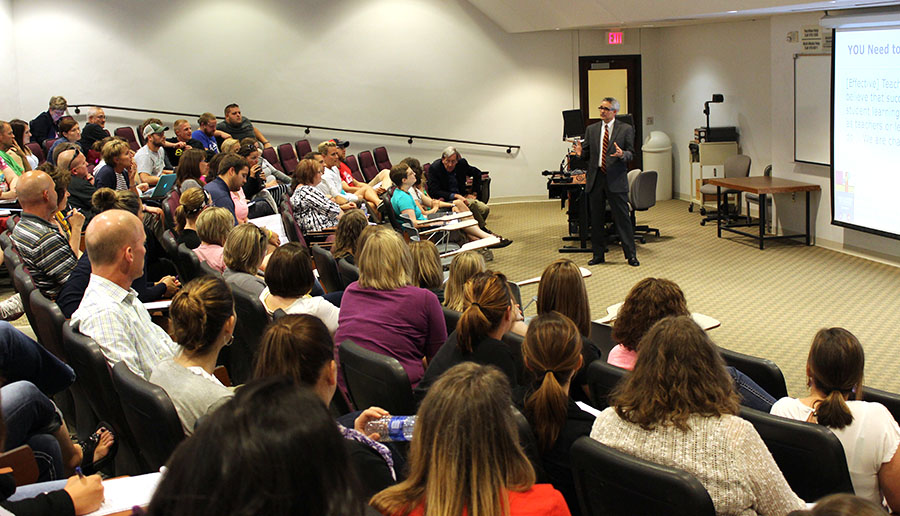
With a new document from the National Council of Teachers of Mathematics, writing team member Dr. Matt Larson is trying to change the conversation the nation is having about standards.
Larson, the K-12 Curriculum Specialist for Mathematics for Lincoln Public Schools, spoke to teachers from LPS, OPS, ESU 3 and in the Primarily Math Cohort 5 in Grand Island about the guiding principles outlined in “Principles to Actions: Ensuring Mathematics Success for All" during the summer. He emphasized the need to change the discussion from standards to instruction, as standards are not enough on their own: good teaching is crucial.
Standards have raised the achievement of students, but have not closed the achievement gaps, Larson said. Standards do not describe the conditions that need to be in place for all students to be successful in mathematics.
The book outlines six guiding principles, and each one discusses the productive vs. unproductive beliefs associated with it, obstacles and how to overcome them, and the action steps leaders, principals and teachers can take.
Larson discussed these eight high-leverage instructional practices:
* set goals that are mathematical and situated in a learning progression
* implement tasks involving reasoning and problem solving
* use and connect mathematical representations
* facilitate meaningful discourse
* pose purposeful questions to assess and advance student learning
* build procedural fluency from conceptual understanding
* support productive struggle – being too quick to rescue students from struggle deprives them of learning
* elicit and use evidence of student thinking for formative assessment
Larson stressed that the most important practice is to support productive struggle, and urged teachers to read the chart in the book regarding teacher and student actions related to productive struggle. He also emphasized the goal to consistently implement these practices in every classroom.
The book also defines five essential elements of effective math programs:
* Access and equity: All students need access to high-quality teaching and high expectations
* Curriculum: Obstacle is treating content as a checklist
* Assessment: Use as an instructional tool, not an accountability tool
* Technology and tools: Do not use technology for technology’s sake, use it to enhance student learning
* Professionalism: Professional development and teachers collaborating – teachers hold one another to high expectations
Effective teachers are the agents of change to improve student learning, Larson said.
Jim Lewis, professor of mathematics and director of the Center for Science, Mathematics and Computer Education at UNL, said he believes this document will become the most important guide in math education for teachers over the next decade.
To purchase a copy of the book, see the NCTM site:
http://www.nctm.org/catalog/product.aspx?id=14861